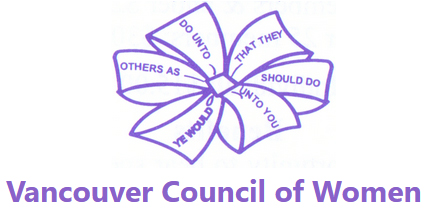By Elizabeth Gautschi, Civic Affairs Convenor
Metro Vancouver
Do you know a young person or a teacher who might be interested in taking part in regional issues? Metro Vancouver invites young people and educators from across the region to participate in the newly formed Metro Vancouver Youth and Education Advisory Panel.
The Youth and Education Advisory Panel will help provide a youth perspective on Metro Vancouver’s programs, projects, and policies. The panel will include up to five representatives from a high-school-aged group (ages 13-18), up to five representatives from a post-secondary-aged group (ages 18-25), and up to five representatives working in K-12 education.
The panel will receive and review information, and advise on topics related to the development of Metro Vancouver’s projects and programs. They will be invited to pose questions, engage in discussion, and provide comments for consideration on regional issues like managing wastewater, reducing waste in the region, water conservation, taking action on climate change, plans and projects related to regional parks, delivery of K-12 programming and other regional issues. The panel will share comments and present recommendations to Metro Vancouver staff. Youth and people working in K-12 education interested in participating are asked to submit their applications by February 3, 2023 online at metrovancouver.org (search “Youth and Education Advisory Panel”). Participation is voluntary.
City of Delta
The Mayor has initiated a plan, supported by Council, to improve access to Regular Council Meetings for North Delta residents. The City now alternates meetings evenly between North Delta and South Delta, providing equal opportunity for all residents to stay informed on the business of Council. Regular Council Meetings are also available by live stream, using any device that has access to the internet, and on television through Delta Cable. The archived video is available the day after a meeting online.
City of New Westminster
The City has an interactive, online space where community members can learn about a variety of City projects and share their feedback and ideas. Join the conversation on your own schedule and from whatever location is convenient for you. Sign up to receive updates and never miss an opportunity to share your input and be heard. Go to Be Heard New West to get started!
For information on upcoming Public Hearings and other formal opportunities to provide comments to City Council, visit the Public Notices page. To learn about projects that are not in an engagement phase or are now completed, visit Projects on the Go.
Want to be notified about engagement opportunities? The best way is to register on Be Heard New West! Registered users receive emails when new feedback opportunities are launched.
You can also subscribe to CityPage Online, the City’s electronic newsletter, and receive updates on a wide variety of City news every Thursday.
City of North Vancouver
Volunteering is a great way for residents to get involved, provide input on important issues, and make a positive contribution to our community.
The City welcomes applications from citizens interested in volunteering their time, sharing their expertise, and helping their community. You are encouraged to submit an application, including the name of the committee you wish to join. All committee applicants must be City residents.
The City Clerk’s Office will confirm receipt of your application and may also request a copy of your resumé. Applications are accepted throughout the year, and are retained on file for one year.
Visit the City of North Vancouver’s Committees page for details on all committees. If you have questions about Committee, Commission, or Board vacancies, contact the City Clerk’s Office at 604-990-4231 or committees@cnv.org.
City of Surrey
City Council meetings are held Monday evenings in accordance with the 2022 Council meeting schedule. Council meetings are simultaneously live streamed on the City of Surrey website and videos of recent meetings are also archived for viewing.
If you would like to get involved with your local government, there are over 25 different committees, commissions or boards that residents could possibly join. From food policy to diversity, there are a range of topics these groups cover. Year-round applications are welcomed.
City of Vancouver
The City and Park Board have a diverse range of volunteer opportunities to fit your goals, skills, and schedule. Volunteering is a rewarding way to:
- Share your skills to improve your community
- Meet new people who share your interests
- Gain experience or learn new skills you can use in a job or other areas of your life
Go to Vancouver.ca for a list of volunteer opportunities with the City and Park Board.


